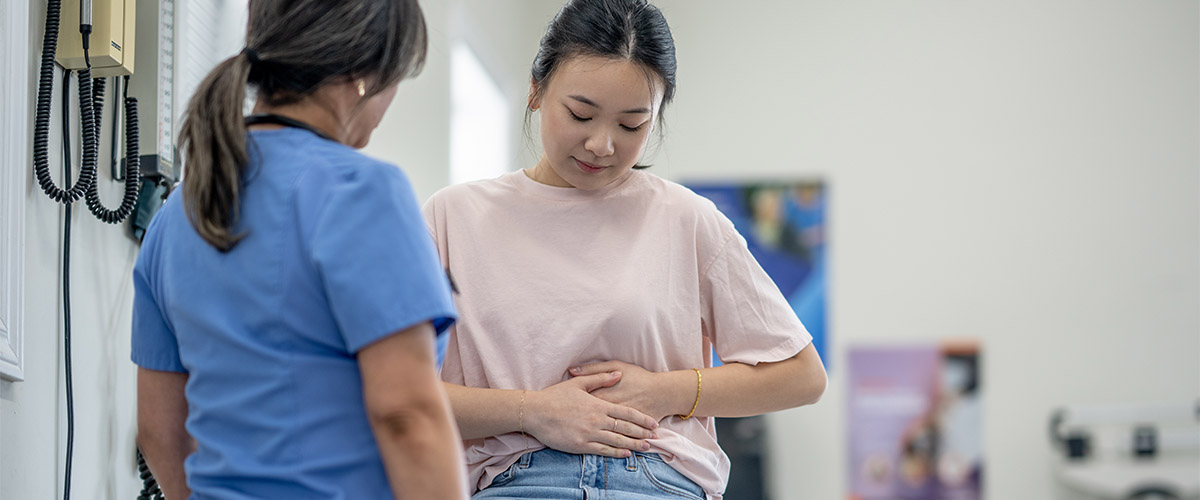Colonoscopies: When You Should Get One and What to Expect

March 02, 2026 | Tags:
Colorectal cancer is currently the second most common cause of cancer-related deaths among both men and women combined in the U.S. With more than 55,000 anticipated deaths from colon cancer in 2026, early detection has never been more critical in saving lives.
Regular screenings help identify early warning signs, making issues easier to detect and treat. By staying proactive with your health and scheduling a routine colonoscopy, you can significantly reduce your risk.
What is a colonoscopy?
A colonoscopy is a medical procedure that examines the inside of the large intestine (colon) that looks for abnormalities, like tissue changes, polyps or cancer. It uses an endoscope, a long, flexible tube with a lighted camera on the end, to take pictures your doctor views on a monitor.
“With colorectal cancer rates in younger adults on the rise, a colonoscopy can detect the disease early when it’s easier to treat,” said Jason, a Clinical Quality Management Nurse at Medical Mutual. He notes that it's the preferred screening method to stay ahead of health issues.
Colonoscopies aren’t just for routine cancer screenings. They can also be used to:
- Seal wounds.
- Look for additional polyps.
- Place a stent or remove a blockage.
- Investigate intestinal problems, like abdominal pain, rectal bleeding or
- chronic diarrhea.
How to prepare for a colonoscopy
Preparing for a colonoscopy involves cleaning out your colon. Your doctor will provide important instructions ahead of time to follow carefully, or the procedure may need to be rescheduled. Tell your doctor about any medications you’re taking, especially if you have diabetes, high blood pressure or heart problems. Only stop taking a prescription if your doctor advises you to.
A few days before your colonoscopy, you’ll adjust your nutrition to more low-fiber foods. The day before, you’ll follow a clear liquid diet, avoiding solid foods and opaque liquids, like milk or juices with pulp. The afternoon or evening before, you’ll take a laxative formula to purge your bowels. This part can be unpleasant as you’ll spend a lot of time in and out of the bathroom. Try and make yourself as comfortable as possible.
What to expect during and after a colonoscopy
A colonoscopy is an outpatient procedure, meaning you’ll go home the same day, and generally takes 30 to 60 minutes. Full or light sedation is used to help you relax so you shouldn’t feel any pain or discomfort.
Your doctor will insert the scope into your rectum and inflate your colon with air. They’ll watch the monitor for any abnormalities, taking biopsies or removing polyps if needed. The scope is then removed the same way it was inserted, and you’ll be sent to recover from the sedative medicine. Since it can take a full day to completely wear off, you’ll need someone to take you home. You may experience gas pain, bloating or nausea, but these should pass quickly, and you can resume your normal eating habits when you feel ready.
How often do you need a colonoscopy?
The time between colonoscopy screenings will vary depending on your results, but you should start regularly screening at age 45. If they are negative, you’re at average risk of colon cancer or if you have benign small polys, your doctor may recommend you wait 10 years for your next colonoscopy.
If your results are positive, you have a family history of colon cancer, certain genetic syndromes or a history of polyps from previous procedures, your doctor may recommend a colonoscopy every one to seven years or more frequently based on your individual risk. Everyone’s health needs are unique, so it’s important to discuss with your primary care provider (PCP) how often you should schedule your next colonoscopy.
Talk to your provider about a colonoscopy screening
Check with your PCP about scheduling a colonoscopy if you’re over age 45, have a family history of colon cancer or experience the following symptoms:
- Persistent abdominal pain
- Rectal bleeding or discharge
- Weight loss or lack of weight gain
- Changes in bowel habits, like diarrhea, constipation or incontinence
While most plans cover preventive colorectal cancer screenings after a certain age, verify your coverage beforehand to be sure. If you don't have a PCP, Medical Mutual can help. Use the Find a Provider tool to find a PCP in your plan's network or call the Customer Care number on your member ID card.


